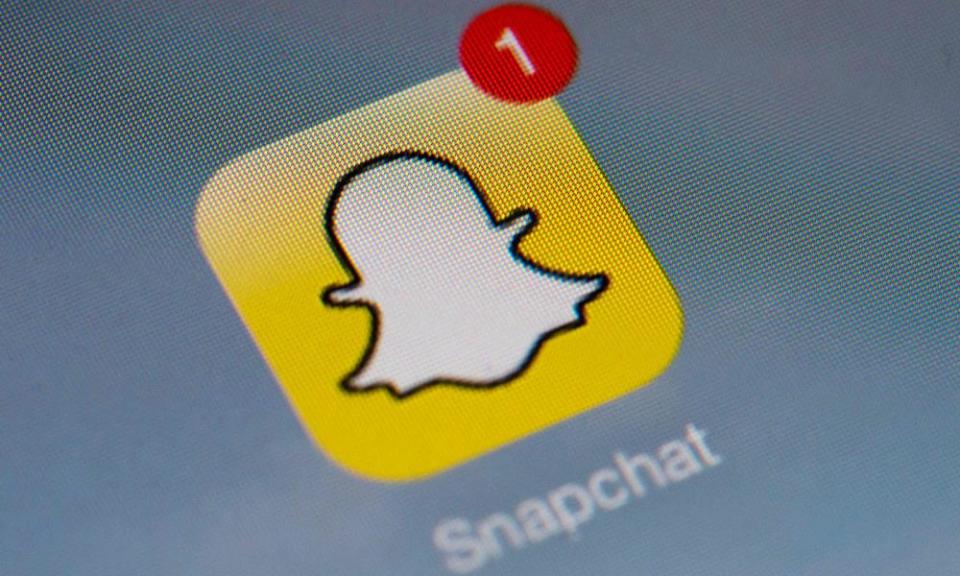Shares in Snapchat owner slump 25% amid slowdown in ad revenue

Shares in Snapchat’s parent company have fallen 25% after it confirmed investors’ fears of a slowdown in advertising revenue for social media firms.
Snap painted a grim picture of the effects of a weakening economy on social media in quarterly results on Thursday and declined to make a revenue forecast in “incredibly challenging” conditions, hitting its share price in after hours trading and setting off a chain reaction among listed rivals.
Snap, which generates more than two-thirds of its revenue in North America, said some advertisers continued to face supply-chain disruptions and labour shortages, and many others were contending with rising costs amid record inflation, which has led to cuts in spending on advertising.
Snap’s revenue for the second quarter ending on 30 June was $1.11bn (£930m), missing analyst expectations of $1.14bn, which pushed its shares down by a quarter to $12.33. The figure grew 13% from the prior-year quarter. Snap said revenue in the current third quarter was flat compared with the prior year.
Daily active users on Snapchat rose 18% year-over-year to 347 million, beating consensus estimates of 344 million users.
Mike Proulx, a research director at analysis firm Forrester, said: “While the platform’s user base remains strong, Snap’s ad-centric model is no longer a sure bet and is especially volatile heading into a period of economic headwinds where marketers are sure to pull back their ad spend.”
The California-based company said it would significantly slow hiring, invest in its advertising business and find new sources of revenue in order to grow at a faster pace. Advertising is Snap’s main source of revenue. It recently launched a premium service called Snapchat Plus, which costs $3.99/£3.99 a month and offers features such as the ability to message friends from your desktop.
Facebook owner Meta, Google owner Alphabet and other companies that sell online ads lost about $80bn in combined stock market value on Thursday after Snap’s results. The company is normally one of the first of the social media firms to report second-quarter earnings and is viewed as a bellwether for similar stocks.
Investors are expecting the slowest-ever pace of growth for social media ad revenue this year, as rising inflation and other economic woes cause brands to slash their marketing budgets.
Twitter, mired in a legal dispute with would-be suitor Elon Musk, reports results later on Friday.
Tech stocks have been hit this year as rising inflation around the world has combined with interest rate increases from central banks to rattle investors. Advertising has not been the only factor in their decline. Tech stocks, the price of which can be based on expectations of strong future earnings over many decades, can be relatively less appealing than the immediate fixed returns on offer from investments such as bonds, which become more attractive in a higher lending rate environment.
So far this year, shares in Meta have fallen 46%, with Alphabet down by 21%, Apple by 15% and Netflix by 62%.
“We are not satisfied with the results we are delivering, regardless of the current headwinds,” said Snap.
Recent privacy changes on iPhones, macroeconomic challenges and increasing competition for a pool of advertising dollars that is growing more slowly all contributed to “substantially slowed” revenue growth, Snap said.
Snap has been investing heavily in augmented reality technology and ads, which overlays digital images on to photos and videos of the real world.
Snap’s chief executive, Evan Spiegel, and the chief technology officer, Bobby Murphy, have agreed to serve in their roles through to at least 1 January 2027, for a $1 salary and no stock-based remuneration, the company said. Both own significant stakes in the company.

 Yahoo Finance
Yahoo Finance 